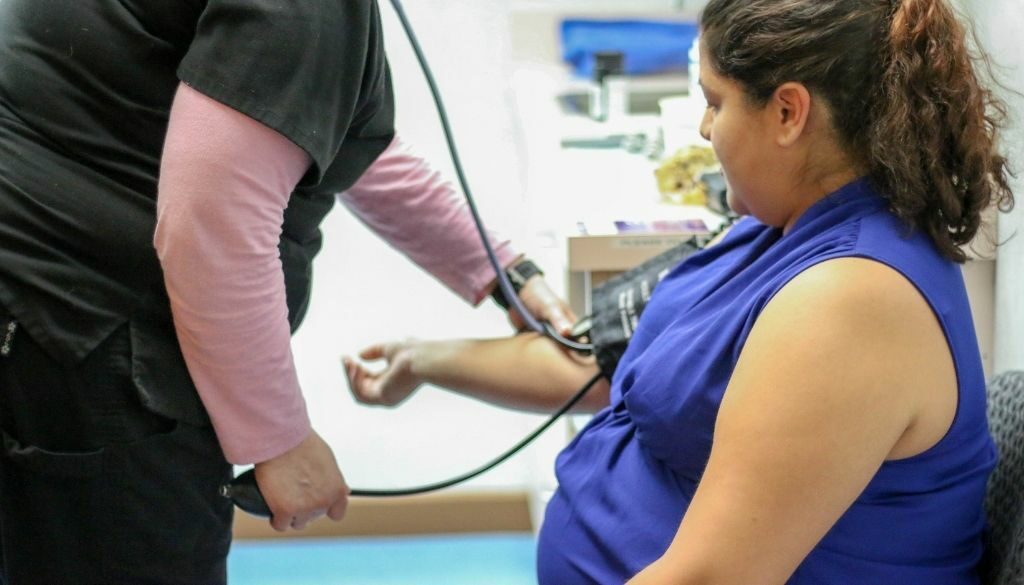Your Guide to the OBGYN Appointment Schedule for Pregnancy
At Chapel Hill OBGYN, we take great pride in taking time to get to know all our patients by name. We treat our practice and our patients like a family, and we are always excited to have a new “addition” to our group.
When you’re expecting, we’ll tailor a care plan just for you. Here are some guidelines to give you an idea of what to expect during your pregnancy appointments.
We suggest scheduling a confirmation of pregnancy appointment as soon as you think you’re pregnant. This is an important visit. We’ll take time getting to know you, discussing your medical history and ensuring we have an up-to-date list of all the medications and herbal remedies you use.
We also want to know about your gynecological history, if you’ve had any previous pregnancies, including miscarriages and any problems you’ve had with your menstrual cycle.
You may wish for your partner to be with you during this first appointment, however, if there are issues of a sensitive nature, you’ll always have an opportunity to speak to one of us privately. Please note that ultrasounds are NOT done during confirmation of pregnancy appointments.
Prenatal Care During the First Trimester
The First Obstetric Appointment (8-10 weeks gestation)
After your pregnancy confirmation appointment, you will be scheduled for your first obstetric appointment. During that appointment, we will:
- Confirm your due date
- Determine which vaccinations you have had and if you will need additional ones
- Perform an ultrasound of your pregnancy, unless you have had one with us within the past couple of weeks
- Develop a care plan tailored to your needs that includes consideration of your obstetrical and medical history
- Discuss the availability of genetic testing options if desired
- Talk with our team regarding insurance coverage
Depending upon your risk factors and the results of the physical examination, we’ll schedule visits throughout the first trimester, which in general will be an exam every four weeks. During these we’ll check your blood pressure and other vital signs. When you are 10 to 12 weeks pregnant, we may be able to hear your baby’s heartbeat with doppler.
Discussion of Important Pregnancy Topics
While we encourage everyone to live a healthy lifestyle regardless of whether or not they’re pregnant, this is a time to focus on making good choices for your body. We may talk about things such as:
- Healthy eating during your pregnancy—including what to avoid
- Safe exercises you can do while pregnant
- Tips on how to manage morning sickness
- What to do if you experience vaginal bleeding when you’re pregnant
- Common issues you may have during pregnancy, such as:
-
- Heartburn
- Fatigue
- Varicose veins
- Broken sleep
- What to expect at each visit
- The importance of prenatal vitamins and how you should take them
Blood Testing
We want to be sure that you don’t have any problems early on in your pregnancy, and that’s why we draw blood for testing. While we customize every visit to meet your individual health needs, our panel of tests typically include:
- A complete blood count (often called a CBC)
- A rubella viral antigen screen to show how immune you are to rubella. Rubella is a disease that causes a rash, and it is similar to the measles.
- Blood typing
- Tests for diseases such as syphilis, hepatitis and HIV
- Complete urine analysis
- Genetic testing is available
Obstetric Visits During Your Second Trimester (14-27 weeks)
We highly recommend participation in our Centering Pregnancy ® program. Through this program, those who have similar due dates meet as a group with their health care provider, sharing information, concerns and developments. As a result, women are able to spend more time with their health care provider while also developing a sense of community and emotional support. These meetings – currently via Zoom – start at 16 weeks and continue through 38 weeks.
During your second trimester, it’s time to discover if you’re having a boy or a girl (unless you want to be surprised!)
This is also the time during which we will have additional discussions about screening and diagnostic tests for spina bifida.
Spina bifida occurs when the neural tube containing the spine doesn’t close completely. As a result, it can cause disabilities that can range from mild to severe, depending upon what part of the spinal cord and nerves are affected.
Other second trimester tests include:
- Fetal ultrasounds – which help us evaluate your baby’s development.
- Blood tests – which check your iron level and evaluate your risk for gestational diabetes.
At each visit you will hear the baby’s heartbeat, your urine will be checked for protein and sugar, and your blood pressure will be checked. After 20 weeks, we also will start measuring fundal heights as an indirect way to measure fetal growth.
Questions to Consider Asking at Your Appointment
We know you have a lot of questions—so much that it can often seem to be overwhelming. Don’t worry; we’re here to help ensure you have the answers you need.
You may wish to consider discussing some of the most frequently asked questions we’ve experienced. These include
- Is snoring normal?
- Do I need to make additional changes to my exercise routine?
- What is my risk for complications?
- When should I call you about symptoms? (Hint, hint: The answer is you should call us any time you have a concern or question.)
- What can I do for heartburn?
- Is it okay to have sex?
Continue Learning Throughout Your OBGYN Appointments During Pregnancy
Through your Centering groups and other opportunities, you’ll realize that you’re on this journey with many others, whether they are first-time parents or welcoming a sibling into a large household. We want to encourage you to ask us and all your health care providers any questions. This is an exciting moment in your life, and it’s important that you let us know of any concerns you have.
Third Trimester Visits (28 weeks – delivery)
Depending upon the results of your tests and fetal development, we’ll schedule appointments every two to four weeks until you are at 36 weeks. From then on, we will have weekly check ups until time for you to deliver.
In addition to the routine tests established during the second trimester, we will:
- Ask you to keep track of how often your baby moves.
- Test you for a bacterium called group B strep (GBS). Those who are carriers receive an antibiotic during labor to decrease the risk of transmission of this bacterium to their baby.
- Check the baby’s position. If your baby has a breech presentation, we will monitor the situation closely and discuss the option of trying to turn your baby to improve the chance of a vaginal birth.
- Continue to discuss your birth plan.
- Start considering who will be your pediatrician
There is no question that is too embarrassing. We want you to be empowered and take an active role in the care of both you and your baby. Our team of obstetricians and Certified Nurse Midwives will monitor you closely and provide empathy, support and encouragement whenever needed.
We Encourage You to Sign Up for Childbirth Classes
This is a good time to review information on our wide variety of childbirth, child care and breastfeeding classes that are available.
Midwifery Care at Chapel Hill OBGYN
Our Certified Nurse-Midwives are dedicated professionals who provide personalized care and support for labor and delivery for those with low-risk pregnancies. Our midwives lead our Centering Pregnancy® sessions and provide care throughout pregnancy as well as labor and birth. In addition, they also provide postpartum support along with breastfeeding information and assistance.
Our Advanced Care Team at Chapel Hill OBGYN
We have an obstetric advanced care team that supports you by streamlining communication between members of your health care team. We will help you make decisions that best reflect your preferences and values that are important to you.
We have two convenient locations to serve you: one in Chapel Hill on Connor Drive and Durham at Southpoint.
Do you think you may be pregnant? Please call us to schedule an appointment. We can usually see you within the same week that you call.
For more than 40 years, Chapel Hill OBGYN has served patients in Durham and Chapel Hill area, sharing the joy of little miracles and supporting them during challenges. Our board-certified physicians and certified nurse midwives bring together the personal experience and convenience of a private practice with the state-of-the-art resources found at larger organizations. To schedule an appointment, please contact us for more information.




